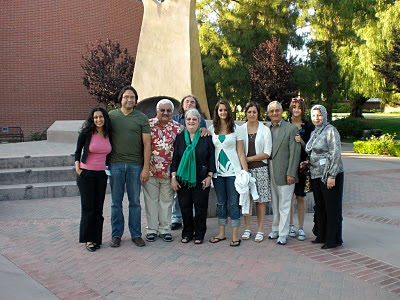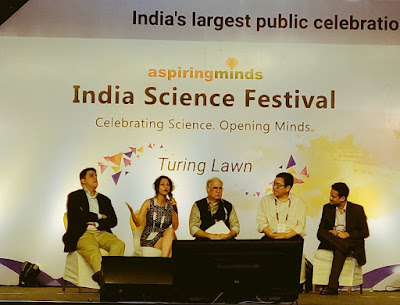Not quite "up in the air!"

Am on the road right now, but not quite Up-In-The-Air style. From Amsterdam to Thousand Oaks (near LA but as argued by some, “far” from LA as possible), I’m doing the conference circuit, the social life of many academics. After all, here’s a willing audience for your obscure Whitehead reference and hand-punctuated intellectualism. And if you thought Marxism is dead, you’ve evidently not attended enough academic conferences. Impossible ideals are preserved in the confines of academia, a natural fodder for multiple critiques of real world practice, leading to publications and sustenance of passion from the vantage point of the beloved armchair. Don’t get me wrong; I love armchairs. It’s comfortable, and allows for a respectable pause for reflection and pontification. Of course, I like it even better when we’ve earned the temporary rest through actual experience but then, if that were always the case, whom would we have left to mock?
So what was this conference about? Well, besides the usual deep evaluation of hotel rooms and fine dining which is the lifeblood of such conferences, we came together to bond on what’s the social responsibility of mass media, particularly pertaining to contemporary events such as the financial crisis to the oil spill. The term “social responsibility” itself should be up for discussion though as its hard to be responsible to an abstract “social” entity, as if there’s a monolithic group with shared interests. No wonder we can go around in circles sometimes when we’re grabbing trendy terms as a starting point of discussion, without acknowledging that this expectation is in itself problematic. Being responsible to one social group comes at the trade-off of another. The question is, who is the deserving and current chosen “victim” group that is deemed in need of representation and protection?
Also, one can’t help but notice that when critiquing the media, often journalists are badgered to death on their amoral drive for the quick storyline, their direct role in distorting news. So it was refreshing to see a journalist in the audience share her struggles of how hard it is to penetrate the corporate marketing slick that gets circulated to all journalists. It’s so manicured that often she lamented, journalists have little choice but to print what they get from these corporations. Better something than nothing. Now that’s what I like about conferences - when different stakeholders come together and give us their side of things. Unfortunately that does not happen often. We surround ourselves with too many people from academia and too few from the professional world.
Another discussion that I thought was interesting is this demand for “balanced” reporting, this fair share of voices. It seems to me that people argue for an even platform for all parties. There’s this romantic notion that if they all enjoy the “equality” of representation, there will be more diverse perspectives and debates. Hardly. We start from a deeply uneven platform where special interests and lobby groups dominate. So if we’re looking for more “balanced” reporting, we have to first make explicit the dominant views and stakeholders and from that standpoint, advocate for those voices that are less vocal, less noticed, less attended to.



Comments
Post a Comment